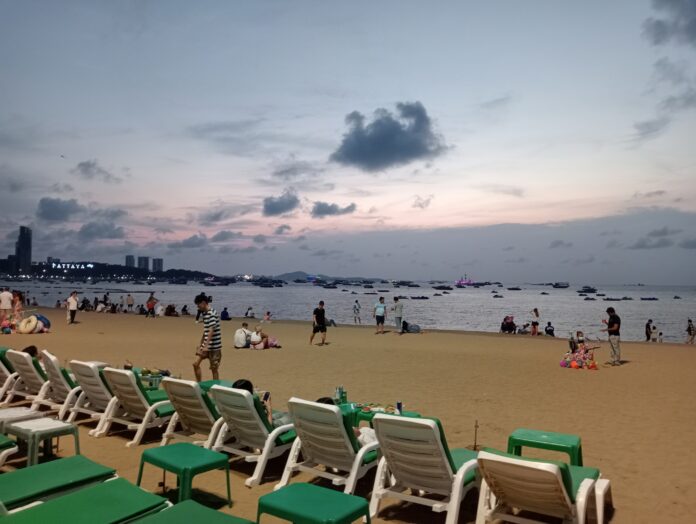
PHUKET: Reports of a requirement for foreigners staying in Thailand on 'Non-Immigrant O-A' visas now needing to have B3 million COVID health insurance caused much confusion last week, but several of the 'guidelines' approved in principle by Cabinet may broaden the options for health insurance for retirees wanting to stay in the country
News of the B3mn COVID insurance spread quickly, with different reports marking different requirements (see The Phuket News story here).
The level of confusion even saw state news agency National News Bureau of Thailand (NNT) later removing their own story from their main news website. The link to the NNT story, originally posted here, now redirects viewers to the NNT news home page.
According to the official minutes of the Cabinet meeting last week (June 15), the Cabinet was very clear that the issue of retiree foreigners staying in Thailand needing health insurance that covered COVID infection was raised by the Ministry of Public Health (MoPH).
The ministry had pointed out that the current insurance requirement for foreigners staying on Non-Immigrant O-A visas was likely to be insufficient.
Non-Immigrant O-A visas are offered to appeal to people who have retired from work and want to live in Thailand.
The Ministry of Foreign Affairs describes the visa as, "This type of visa may be issued to applicants aged 50 years and over who wish to stay in Thailand for a period of not exceeding 1 year without the intention of working. Holder of this type of visa is allowed to stay in Thailand for 1 year. Employment is strictly prohibited."
The MFA emphasises that applicants must be aged 50 years or over.
Currently, holders of Non-Imm O-A visas must purchase Thai health insurance with a limit for medical expenses of not less than B40,000 in case of outpatient treatments and not less than B400,000 in case of inpatient treatment required.
The MoPH recognised that many foreigners in Thailand were of an age that made the cost of obtaining such health insurance coverage prohibitive. Some were unable to be issued a policy at all, leading the government to launch a project so that such foreigners could buy insurance through confirmed insurance providers through the longstay.tgia.org web portal.
However, the issue of many foreigners not being able to afford the policies, or unable to be issued such health coverage persisted, prompting the MoPH to review the insurance coverage guidelines for foreigners staying on Non-Imm O-A visas, noted the Cabinet minutes.
The Cabinet specifically recognised that "there were problems in the process of applying for a visa to purchase health insurance" as follows:
1.1 Foreigners over 70 years of age cannot purchase insurance in Thailand. As a result, they are not qualified to apply for extension.
1.2 Form for buying insurance abroad inconsistent with the insurance business system/benefits from various funds
1.3 The application to renew the visa twice (extend) wish to take medical insurance overseas.
"In the past, the Ministry of Public Health has issued health insurance certificates to four foreigners to use in applying for visa extensions due to being refused to purchase health insurance in Thailand, [and] as a result, the visa extension cannot be renewed," the Cabinet minutes read.
The new proposed guidelines, now approved in principle by the Cabinet, recommend that only those who are applying for a Non-Imm O-A visa for the first time be required to have health insurance or government welfare coverage of not less than US$100,000 or B3mn ("adjusted health insurance limit") to cover medical expenses for COVID infection.
Of note, the Thai General Insurance Association (TGIA), which also operates the government-supported longstay.tgia.org web portal, refers visitors to its main home page, which it notes very clearly, in English, "This COVID-19 Insurance Policy, together with its renewal, is a requirement for inbound travelers to Thailand only. It is not intended for foreigners currently living in Thailand."
The second recommendation approved in principle by the Cabinet was that those applying to stay in Thailand under the O-A visa be granted to purchase health insurance from abroad or have government welfare from abroad.
Such health coverage would need to be verified by a government agency, likely through embassies of foreign countries in Thailand, or by the applicant presenting the necessary documents to the relevant Thai embassy when applying.
However, the Cabinet minutes were not clear in differentiating whether this was to apply to just those applying for an O-A visa for the first time, or also to foreigners already staying in Thailand on an O-A visa.
The third recommendation, which may affect many retired foreigners in the country, was to allow applicants who had been refused health insurance coverage to instead be able to present evidence of security or deposits, other health insurance, with a total limit of not less than B3mn.
The minutes explained, "In the case of a person who has a risk of causing the insurance company to refuse, in whole or in part, additional documents are required, such as: Letter of refusal to purchase health insurance; Securities/deposits/other health insurance with a total limit of not less than 3,000,000 baht according to the criteria specified by the Immigration Office."
The Cabinet minutes marked clearly that the guidelines had been approved in principle only.
However, the Cabinet formally tasked the Immigration Bureau to review its order that enacts the mandatory insurance requirements.
Any changes in the mandatory insurance requirements will not take effect until the Immigration Bureau officially changes its own regulations on the issue.



Inga kommentarer:
Skicka en kommentar